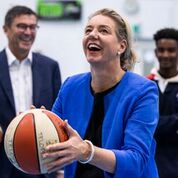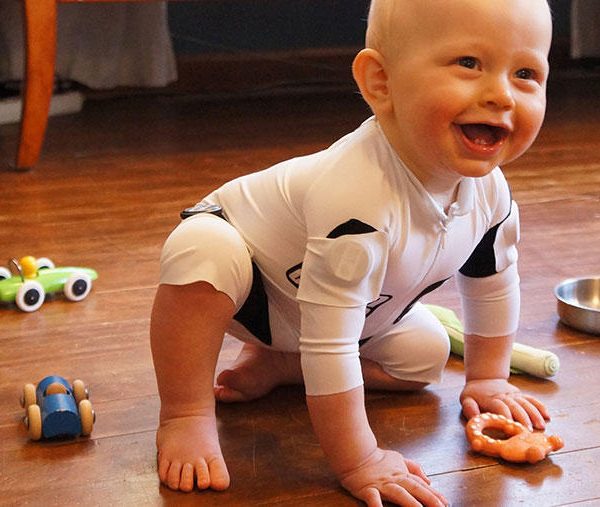Preschool movement might be key to combating chronic disease

Children who are able to run, jump, kick, catch, throw and roll are more likely to be active later in life. The development of fundamental movement skills may not only be beneficial in keeping active in later years, but also in reducing chronic disease, researchers from Charles Darwin University (CDU) believe.
Alexander Engel, an Associate Lecturer in Sport Science at CDU, has been investigating ways to develop fundamental motor skills and increase physical activity in pre-school children with a long-term goal of reducing chronic disease.
Research has shown the more active a person was as a child, the more active they were as an adult – and active adults were less likely to suffer chronic disease such as cardiovascular disease, diabetes or cancer.
Two programs have been developed as part of the research project, which will be of interest to those working in the early childhood education and care (ECEC) sector. The first, PLAYFun, is designed for use within a service setting, while the second, FUNMOVES, is a video intervention aimed at educating parents to teach fundamental skills to their children at home.
Mr Engel said a trial of PLAYFun in four pre-schools in the eastern suburbs of Sydney showed an increase in fundamental motor skills of all children, and a positive effect on girls’ sedentary behaviour.
“PLAYFun is a trainer-to-child teaching program, which covers motor skills across all three categories: locomotive (body movement), object control and balance,” he said.
“Children who participated in the PLAYFun program saw a 12 per cent improvement in their motor skill competency compared to age-matched controls. Girls who completed the program decreased their sedentary time by 6.4 per cent whereas girls not in the program increased sedentary time by 9.5 per cent.”
Further analysis showed that two sessions a week for 12 weeks were enough to increase fundamental motor skills. However, improvements were not maintained 12 weeks after the completion of the program, indicating the need for continued practise.
Mr Engel said for children who began to withdraw from sport at an early age – it all came down to doing what they were good at.
“There’s a reason why kids who are good at sport take part in a wide variety, and those who aren’t shy away from participation,” he said. “Unfortunately, this can have an impact on health later in life.”
To address scalability issues related to the cost of qualified trainers and equipment required to deliver PLAYFun, Mr Engel developed a second program, FUNMOVES – a video intervention that trains parents to train children.
“I’m keen to see PLAYFun used in pre-schools and we are looking at an implementation model along the same lines as the Munch and Move run by the NSW Government, or Humpty Sports run by Love n’ Deuce with links to the Humpty Foundation,” he said.
“We are also looking for parents to continue trialling the FUNMOVES video program with pre-schoolers at home.”
To learn more about the PLAYFun program, please see here. Mr Engel may be contacted through the University for anything further.
Popular

Quality
Practice
Provider
Research
ECEC in focus - Una Springwood’s intergenerational initiative brings young and old together through connection and care
2025-06-30 10:00:45
by Contributed Content

Provider
Practice
Quality
Research
Aboriginal Education Strategy drives early learning and school success in South Australia
2025-07-01 09:55:12
by Fiona Alston

Workforce
Policy
Quality
Research
Inclusive Practice Framework set to strengthen inclusion in early childhood settings
2025-06-24 11:37:00
by Isabella Southwell











